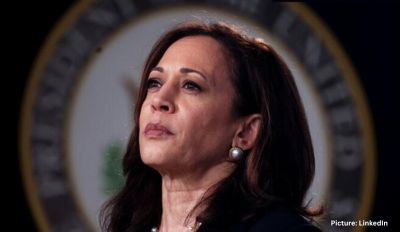With less than a week to go to mid term polls, Republican party and its candidates and state run governments by Republicans across the nation, while sensing heavy losses, are resorting to voter repression and false propaganda.
After the 2010 election, state lawmakers nationwide started introducing hundreds of harsh measures making it harder to vote. The new laws range from strict photo ID requirements to early voting cutbacks to registration restrictions.
The restrictions range from requiring government-issued photo identification to vote, to delaying voter registration if application information differs from government databases, to limiting voting times and locations. What remains unclear is how much they actually deter voting.
After the 2008 election, when Republicans gained control of a number of really important states in 2010, they began to introduce a wave of new restrictions to tighten access to the ballot. Then those efforts were basically given a green light by the Supreme Court when it removed a critical part of the Voting Rights Act in 2013 in the Shelby County v. Holder decision and said that those states with the longest histories of discrimination no longer had to approve their voting changes with the federal government. That allowed states in the South that previously had to prove their voting changes with the federal government – places like Texas and Georgia and North Carolina and Alabama – to implement these new restrictions on voting.
Overall, 24 states have put in place new restrictions since then — 13 states have more restrictive voter ID laws in place (and six states have strict photo ID requirements), 11 have laws making it harder for citizens to register, seven cut back on early voting opportunities, and three made it harder to restore voting rights for people with past criminal convictions.
In 2016, 14 states had new voting restrictions in place for the first time in a presidential election. Those 14 states were: Alabama, Arizona, Indiana, Kansas, Mississippi, Nebraska, New Hampshire, Ohio, Rhode Island, South Carolina, Tennessee, Texas, Virginia, and Wisconsin.
In 2017, legislatures in Arkansas and in North Dakota passed voter ID bills, which governors in each state signed, and Missouri implemented a restrictive law that was passed by ballot initiative in 2016. Georgia, Iowa, Indiana, and New Hampshire also enacted restrictions last year, in addition to laws that were on the books for previous elections.
In 2018, New Hampshire and North Carolina have enacted new restrictions. In 2013, a bare majority of the US supreme court gave the green light to North Carolina by striking down a provision of the Voting Rights Act that required states, such as North Carolina, that had a history of discrimination to preclear electoral law changes with the Department of Justice.
In addition to a requirement that voters show particular forms of ID, the state eliminated Sunday voting, narrowed the window for early voting and eliminated same-day vote registration and early registration for 16- and 17-year olds. Voter ID requirements at least have the superficial appearance of addressing the integrity of elections, although in practice the justification is bogus.
In Georgia, Ohio and elsewhere, Republican officials are purging the voter rolls — taking away people’s registration, often for no good reason.
In Arizona, North Carolina, Texas and elsewhere, Republicans have closed polling places.
In Arkansas, Iowa and North Dakota, Republicans have added onerous new identification requirements.
And in Florida, Iowa and Kentucky, Republicans have tried to make it even harder for people previously convicted of felonies to vote.
These efforts and many others across the nation, in the nation that boasts of it being called the greatest democracy in the world, are anti-voter campaign to be an outrageous injustice. And now, President Trump wants to take away the birthright citizenship that has been granted by the 14th amendment to the constitution. President Donald Trump said he’s considering an executive order removing the right to citizenship for babies born in the U.S. to parents who aren’t citizens.
To energize his base, President Trump has lasered in on immigration ahead of next week’s midterm elections, stoking fear about the caravan of migrants heading toward the U.S.-Mexico border from Central America.
According to analysts, there’s so little evidence voter fraud exists at all that Trump’s appointed voter-fraud commission collapsed. Backed by independent experts, Democrats say the GOP’s principal goal is limiting ballots cast by Democratic-leaning black, Latino, young and low-income voters.
“These laws have been pushed in recent years by Republicans, and the hardest hit have been people of color and young people and poor people,” says Michael Waldman, president of the Brennan Center for Justice at New York University Law School. “Restricting the vote appears to be strategic.”
Two political scientists found that Wisconsin’s voter ID law deterred thousands of voters, disproportionately poor and African-Americans from casting ballots in a state Trump narrowly carried in 2016. Another study found similar effects nationally, especially among Hispanics.
Donald Trump has tweeted about voter fraud. He repeatedly claimed without any evidence that millions of people voted illegally in the 2016 elections. In fact, voter fraud is a very rare problem in American elections. It’s not like it never happens, but it’s not nearly as widespread as many people, including the president, would have you believe.
The GOP’s voter suppression efforts have continued to be well-executed and disenfranchised too many Americans from casting a ballot. That’s where organizations like Let America Vote, Flippable, and When We All Vote come into play. Extreme voter suppression laws that disproportionately impact people based on race, gender, age, income, and sexual orientation have multiplied all over the country.
Voting rights organizations are fighting back against proposals that make it harder for eligible voters to exercise their constitutional right to vote. Whether it’s extreme identification requirements, questionable purges of voter rolls, or voter intimidation – Republicans know how difficult it is to get certain communities to vote for them, so better they can’t vote at all.





